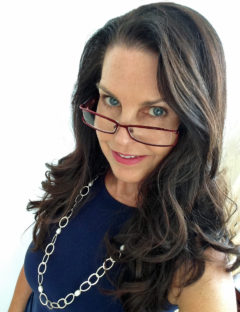Eric Harris sits with an open book in his lap, but doesn’t say anything. Bonnie, the collie, snuggled next to him on a blanket in Matzke Elementary Library, waits. She noses the boy’s arm to read. Eric pats the dog, his grin grows, and he begins. Reading is an adventure in itself, but when a child shares the story with a four-legged friend, they’re more eager to embark on it. That’s the point of BAK-PAK Critters Reading Program. Canine Behavior Specialist Mary Kegarise created the buddy system to encourage confidence and skills as children cozy up for reading. And Cy-Fair residents of all ages, from kids to seniors, are getting the opportunity to experience the positive impact it can have on their lives.
Friendly and Tolerant
Kegarise has been training dogs for 30 years. Her clicks and softly spoken instructions command Bonnie to start, stop, turn, and lie down. Not any dog can be a therapy dog, even if they can manage all that. Each animal is registered, tested, and insured, but must also be screened for temperament, health, manners, and attitude. “These dogs are friendly and tolerant,” says Kegarise to the students at Matzke. “You can even pull on their ears – though it wouldn’t be nice – but they can handle it because they’re trained to be with all kinds of people.”
The Best Listeners
A small team of dogs and handlers arrives at school every week to spend an hour listening to students read aloud. A child opens her backpack to retrieve her book, and the dog alerts. The handler sits nearby, becoming the voice for the hound, and somehow, invisible to the child. When she stumbles, the dog nudges her. And in that special world on the blanket, the child hears the dog say, “That’s a hard word for Bonnie, too. Let’s sound it out.” Kegarise says, “Dogs are less intimidating than people. They increase relaxation, listen attentively, and don’t laugh or judge.”
Gift of Words
Last year, Michelle, who attends Reach Unlimited, a facility for people with intellectual and developmental disabilities, decided that she wanted to learn to read. Reach Unlimited coordinates their activities with BAK-PAK Critters to help people like Michelle achieve their goals. Volunteer Coordinator Kris Young is enthusiastic. “We’ll be able to give her that gift. And this program will be a concrete, measurable benefit that will help a number of our clients with literacy.” The center already enjoys monthly visits from three dogs in conjunction with Kegarise’s Critters for Christ. “It’s one of their favorite activities,” says Young. “The clients relax, and we see joy on their faces. Even those with non-verbal, static expressions light up.”
Silverado Senior Living, whose premiere focus is Alzheimer and dementia residents, understands this animal affection. They allow seniors to move in with their pets and even manage the upkeep if the owners cannot. Employees may also bring in their pets as long as they’re friendly. “You have to love pets to work here,” says Administrator Jan Kaiser. “We call it engagement, to play with the animals to encourage the residents.”
Small dogs fit in a lap and larger breeds sit next to a wheelchair to receive their gentle strokes. Kaiser says, “The animals don’t ask for anything, they just love on the residents. And if they see a family hurting, they come up to help. They seem to know.” Besides Silverado’s four permanent pooches, there are birds and cats. The staff’s young children cheerfully mingle as well. It sounds just like home, and that’s the center’s intention.
Although Alzheimer’s disease is progressive, reactions to the mutts in their midst are constant. “You can see the spark in a resident’s eyes. The touch, the familiarity. In their hearts and minds, they know that love,” says Kaiser. “And we do hospice care. When a ‘journey’ comes to an end here, we bring in a pet. It gives the person a sense of peace and comfort.”
The unconditional love of an animal seems to bridge any gap. Kegarise summed up the pet’s role as, “Easing human need.” CFM


